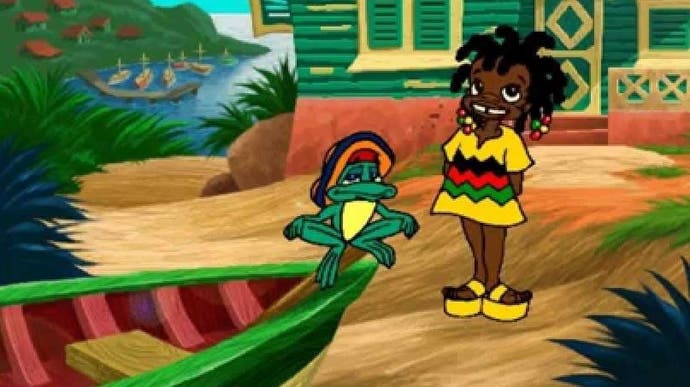Eurogamer Q&A: Our first games
NEStalgia.
You can't trust a child to make a good decision. You just can't; children aren't governed by reason.
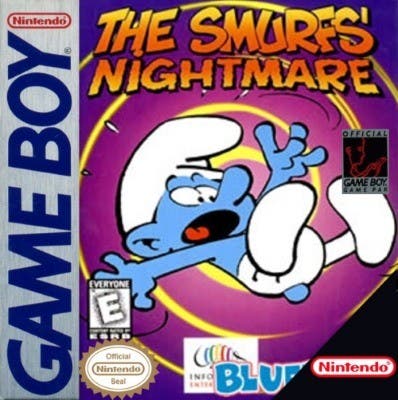
That's my excuse anyway - my way of making peace with the fact that the very first game I bought with my own pocket money, aged seven, was The Smurfs' Nightmare for the Game Boy. I didn't even like the Smurfs - I just really enjoyed the box art. See? Don't trust a child's decision process - there's no logic there.
Luckily, some of my colleagues can boast much finer first game decisions, so I think I'll just leave it to them:
Chris Donlan, Features Editior
The first game I ever played was Blitz on the Vic-20. I remember it with almost shocking clarity: a game in which a plane must destroy a bunch of skyscrapers as it moves lower and lower across the screen before - hopefully - landing on a freshly cleared runway.
Let us set aside the moral ramifications of this design. What's weird is that I remember everything: the sound the bombs made, the impossibility of the task, and the feel of the thing, the way the release of a bomb made pressing the space bar into a real event, the way that the bomb fell so slowly, the way I used to fret about whether my aim was true or not.
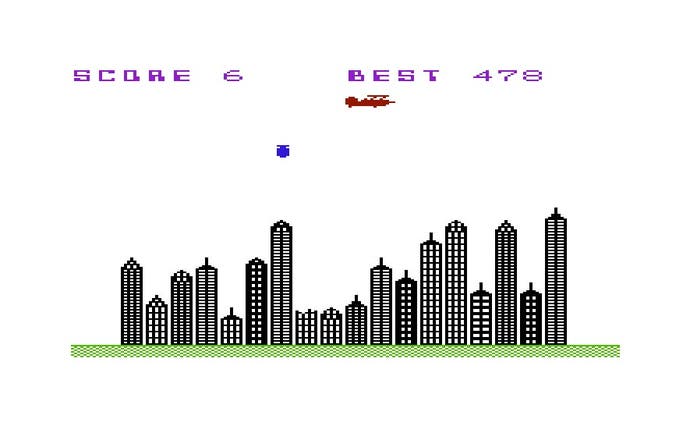
Mostly, though, I remember a sense of incredible potential. Not just of a thing that was on telly but which I could control. But of a thing which had limitations that I could not imagine. Already I was starting to wonder what happened when you landed - whether there was a different type of adventure lurking behind this one. I don't think I was wondering why the plane was doing this or who was in the building, but I remember the very strong sense that here was something mysterious, that it might contain secrets and glittering impossibilities.
Weirdly, the more lavish a game is, the more this goes away. Open world games contain multitudes, but I expect the multitudes so their secrets rarely surprise me. The blank faces of a Vic-20 game, though? The limitations make me think that what I'm seeing on screen may simply be the misleading surface of a puzzle box. These are the kinds of games you want to pick up and shake to see how they rattle, and I think that instinct is built into them - so much that I could sense it even as a peculiarly dim five-year-old.
Martin Robinson, Reviews Editor
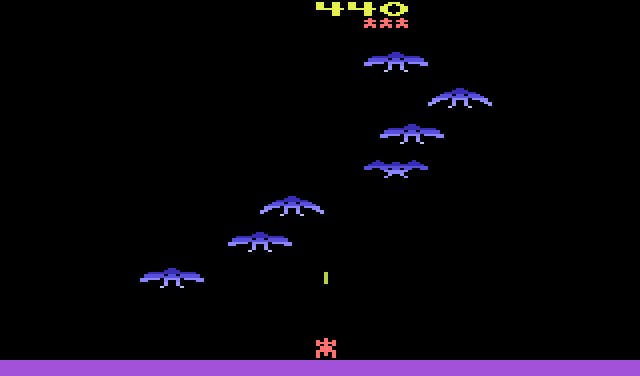
Oh lord, this is going to age me horribly. It was Phoenix, on an Atari 2600 - and one of the wood finish ones to boot. I'm not actually that old - we got our 2600 well after the fact, my parents having won it in a raffle at the local football club, and while my friends were all dabbling with shiny new Mega Drives and Super Nintendos I was sitting up close to a 12-inch TV trying to make sense of this strange new thing.
I was roundly awful at the game, too, never managing to get within touching distance to my dad's or sister's high score. Pole Position, which we found in a bootsale a few weeks later, was another story altogether - and that's when the obsession really started.
Oli Welsh, Editor
My Dad was a science and Maths (and French, and just about everything else) teacher, and he took it upon himself to run his state school's computer lab. This was in the very early 80s, at the start of the home computing boom. A perk of the job was that he would bring home computers he leased, borrowed or bought for the school for us to muck around with at home. We set them up, weirdly, in the hallway, because back then no-one really knew where a computer was supposed to go in the home.
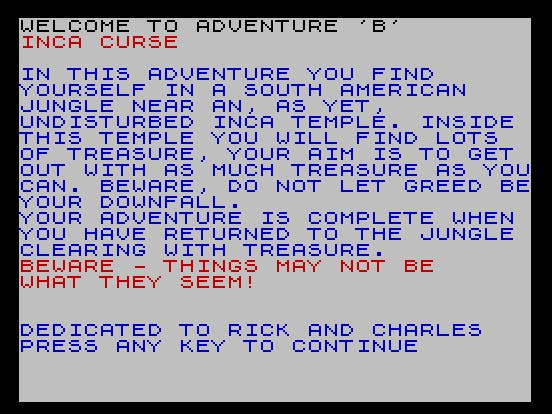
The first that I remember was a Tandy TRS-80, and though I suppose I might have played a game on it if one existed, I have no memory of that. I do remember when the Sinclair ZX81 arrived, though. It was so small and futuristic! (And cheap and fragile and unreliable, but what cost progress?) I can't remember if it was on this loaner or the family ZX81 we bought soon after, but I can remember that the first ZX81 game I played was Inca Curse, a confounding text adventure which, I have just this minute discovered, was written by Charles Cecil of Broken Sword fame. I vaguely recall a humid, jungle setting, a menacing atmosphere and plumbing the depths of a trap-laden Inca tomb. (This was the year the first Indiana Jones film was released.)
The whole family clustered around the tiny black-and-white TV set plugged into the minuscule computer on the telephone table to experience this strange new pastime. Together we tried to fathom the game's puzzles and punched out commands on that creaking, unresponsive membrane keyboard. I was frustrated and transported. I was seven. My life was changed.
Emma Kent, Reporter Intern
I'm not sure if this was, technically speaking, my very first game - but it sure as hell is the most memorable. One does not easily forget a talking Jamaican frog.
Orly's Draw a Story is hardly a household name, but it was made by the same developer that did ToeJam & Earl - and that has to count for something. Yet Orly's Draw a Story was memorable in its own right. As the name suggests, the game essentially asked the player to create their own artwork that would subsequently come alive in the stories. To me, at the age of six, it was mind-boggling.
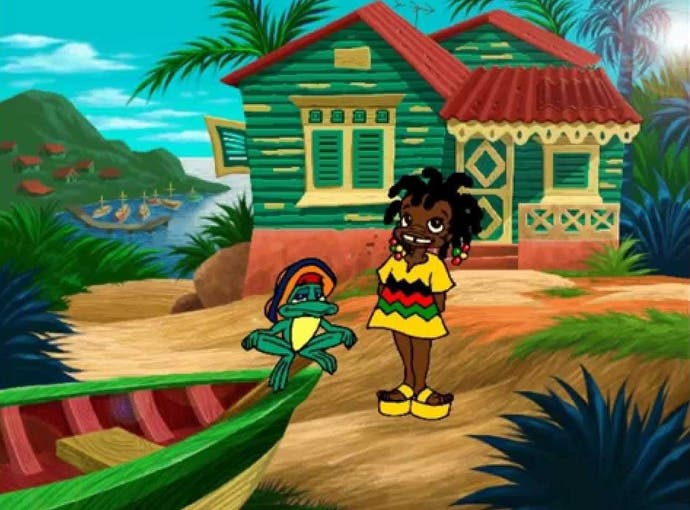
Orly, the protagonist, had four different stories on a scale from ridiculous to batshit insane. Sometimes you would be required to draw a terrifying sea monster - easy enough, seeing as some of the paint options were patterns made of moving eyeballs. Once you'd completed your beautiful (or hideous) creation, it would come alive and talk to Orly in her tale. Sometimes, you would even be able to chat with the creature during the creative process - which was great, as if they were giving you lip, you could simply poke them in the eye with a paintbrush.
The replayability of Orly's Draw a Story was sensational. My sister and I spent dozens of hours hunched over our Windows 2000 PC in the garage, repeating the stories and concocting ever more ridiculous drawings. And we mainly got away with it too: under the guise it was 'creative', our parents were pretty lenient with the hours we could spend playing the game. It's a wonderful memory for me, because my sister and I bonded over this shared creative vision - along with the conspiratorial feeling we were getting away with more gaming than we'd typically be allowed. As a moment frozen in time, I'll always look back on Orly's Draw a Story with passionate nostalgia. Gamers, eh?
Tom Phillips, News Editor
There's a couple of video games I'd consider my first - Super Mario Land 1 and Alleyway were the first games I remember owning, after trying on a friend's Game Boy then begging my parents to get me one for Christmas that year. I remember being amazed when Mario popped out of the bar you use to reflect balls with in Alleyway's brick-breaking puzzles. And then years later, I found out Alleyway was actually a clone of Breakout. It really was a rollercoaster.
But the first actual computer game I ever played was technically something called Granny's Garden, which came on an actually floppy floppy disc for the ancient BBC Micro computer at my first school. I should stress - this was an ancient piece of technology even then, and I think handed down from the school for older kids down the road.
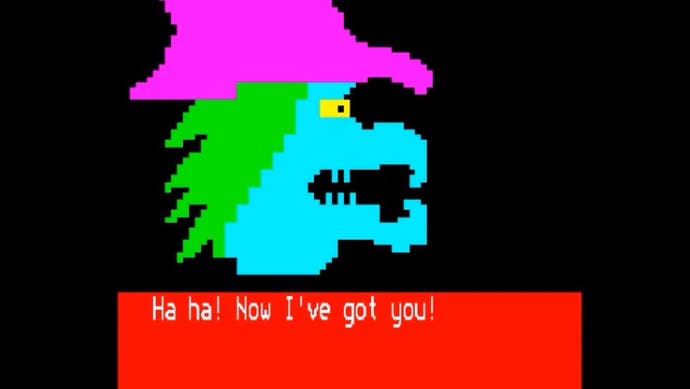
I must have been five or six years old - about the same number as the number of colours in the game's blocky graphics. I remember next to nothing about Granny's Garden itself, other than it was designed as an 'edutainment' game and it had a scary witch who would make you solve tasks and riddles to find the lost children of a king and queen. The thing I remember most, though, is what the witch looks like. I mean, look at her. She's a Teletext page of nightmares. Somehow I still wanted to play more games after.
Do you remember your very first game? Let us know below!
